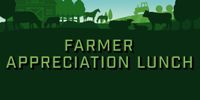With the warmer temperatures that left us last week, when the snow was almost completely melted, we have entered the next phase that's more common at this time of year. Temperatures are still expected to be higher than normal. But snow is here.
However, cattle producers enjoyed the extended grazing season for their herds. The November rains certainly helped to 'green up' pastures and fields, says Scott Chalmers, Applied Research Specialist for Manitoba Agriculture in the Melita area.
"The late fall rains promoted winter wheat and late rye growth, and made some really good fall seed crop establishment," he explains, "and with the lack of snow we've been able to extend our grazing season with some of that greenery and reduced some of our winter-feeding needs. And a lot of the combines were dumping the small seeds that grew and some of the farmers have taken advantage of grazing that volunteer crop to get in some more grazing days, and cycled nutrients, that sort of thing."
He reiterates the stress on soybeans due to the lack of moisture. "We had some of our research plots going about 20 bushel/acre and ... averaged around 29 bu/acre, and these are kind of just break-even numbers. It's barely paying the bills and our time."
The corn yield in their test plots averaged around 100 bu/acre reaching 120 in some areas. Again, rain was the key to a good corn crop.
"We also had our challenges with grasshoppers," shares Chalmers. "I can't believe what a grasshopper can eat and how desperate they can get."
"We also had issues with blackbirds in our sunflowers. They cleaned out our crop which was for plots, and unfortunately, they did not meet the seed requirements because it was such a low yield."
"I find that in dry years the wildlife, including the insects become more desperate," notes Chalmers, "and so we get infestations of deer and birds, the 'hoppers' the lygus bugs. Everything is really hungry during a dry year, but when it's a wet year you don't always see these things. So, it's just the way it goes."
In response to Canada's Online News Act and Meta (Facebook and Instagram) removing access to local news from their platforms, PortageOnline encourages you to get your news directly from your trusted source by bookmarking this page and downloading the PortageOnline app.











